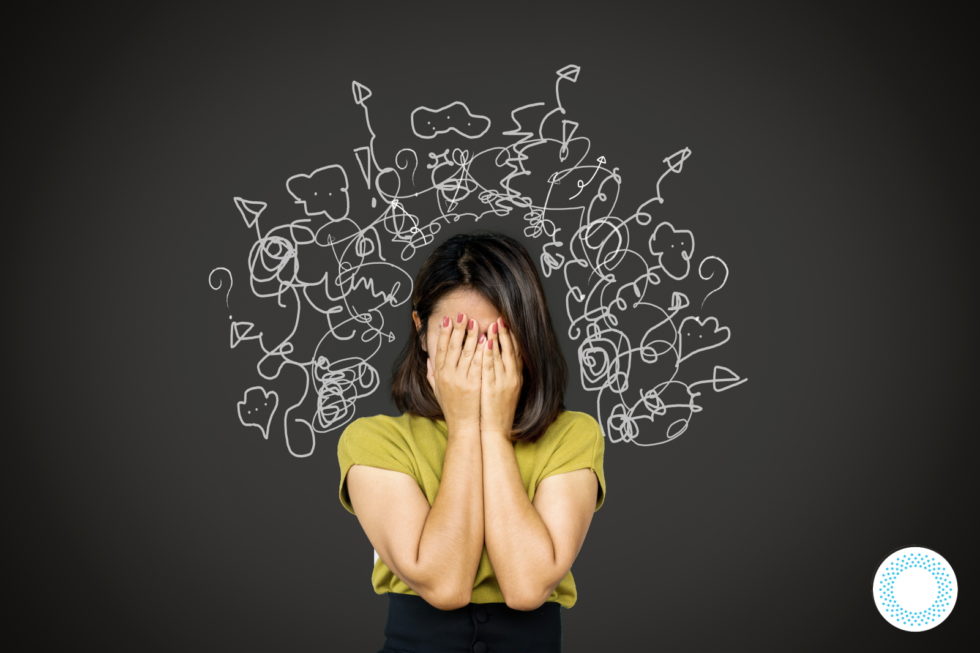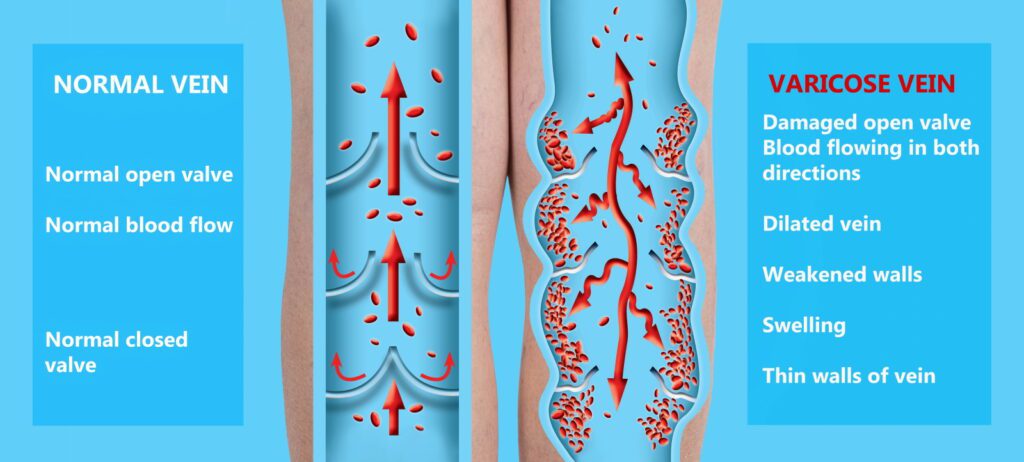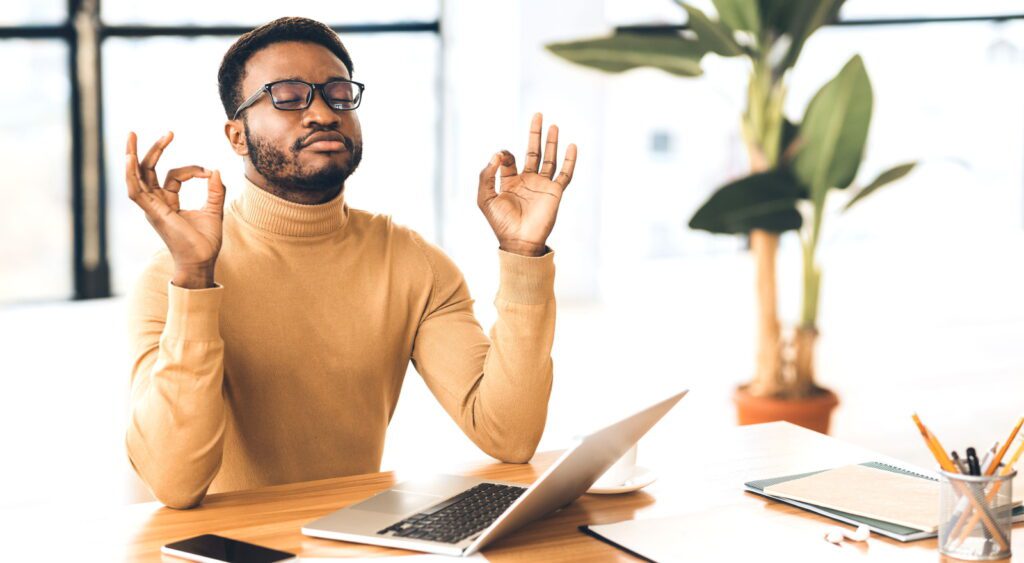Does Stress Affect Varicose Veins?
Author: StrideCare Internal Team

It’s only natural for people to experience stress when they have varicose veins. This is especially true if these bulging veins are more than just a cosmetic annoyance and have been causing pain for years. In fact, there is a connection between stress and vein disease. One problem with stress and vein health is circulation. When we become stressed, our blood pressure rises. This means the pressure on our veins rises, too. When blood pressure remains elevated, either consistently or chronically, it can build up and damage our vein valves.
We are bringing up this very important topic now because April is Stress Awareness Month. According to the American Institute of Stress, 75-90% of all visits to primary care physicians are for stress related problems. And the causes of that stress range from the COVID-19 pandemic to money, work, relationships, sleep deprivation, and even concerns over current health conditions.
We understand that leading a stress-free life is easier said than done, and it won’t completely prevent varicose veins. Varicose veins affect roughly 25% of men and women in the United States, and other factors such as genetics, age, and lifestyle can all be culprits, too. But the connection between stress and varicose veins is real. Often, people report that feelings of stress and anxiety disappear after they’ve had their varicose veins treated. Many even say their previous symptoms were less severe leading up to treatment because of how they learned to manage stress.
What Are the Effects of Stress on Vein Health?
We all experience stress. Some of it is minor and just a normal part of life. But chronic stress affects your health in numerous ways. This includes everything from headaches and skin conditions to depression, sleeplessness, heart disease, high blood pressure, and even varicose veins.
Varicose veins form when the one-way vein valves that should prevent backflow of blood instead become leaky. As a result, blood pools in the legs. Sometimes, vein walls weaken and are unable to handle pressure from an increased amount of blood. This issue can lead to twisted and enlarged veins, which show visibly as varicose veins.
Many times, these bulging, twisted veins are a precursor to more life-interrupting and possibly permanently debilitating health conditions—especially if you’re experiencing any of the following pain or discomfort:
- Throbbing, muscle cramping, swelling
- Numb legs
- Pain that worsens after sitting or standing for long periods
- Achy or heavy feeling in your legs
- Burning sensation
- Bruising
- Itchy skin or skin discoloration
- Excess stress only makes this condition worse.
Here’s what happens in the connection between stress and varicose veins: When we are stressed, our blood pressure rises, which also means that the pressure on our veins rises, too. This causes our blood vessels to weaken, making it difficult for our heart to pump blood against gravity. Eventually, this constant taxed state causes the veins to malfunction. Blood pools in the legs and lower extremities such as the legs, ankles, and feet—and varicose veins develop.

Yes, it’s true that some varicose vein patients—even the ones who experience daily stress—don’t experience any painful symptoms. If anything, they’re simply unhappy that their legs now look worse because of varicose veins. But it’s worth noting that leaving your body in a constant state of stress could eventually push you from an asymptomatic state to feeling like your legs are constantly tired, heavy, and occasionally painful.
If left unchecked, these symptoms will only get worse.
How Can I Manage My Stress and Varicose Veins?
Many people think that stress and anxiety are the same thing. They are not. While stress is the body’s reaction to a threat, anxiety is the reaction to the stress. The good news is that you can manage both at the same time. There are countless stress and anxiety management exercises that you can incorporate into your daily routine.
Below are 4 ways to reduce the effect of stress on varicose veins:
- Dietary Changes
When you change to a healthier diet, stress levels can improve and lessen the effect on painful varicose veins. Protein helps limit the release of sugar into the bloodstream. Lean meat, chicken, fish, eggs, nuts, and seeds should all be incorporated into your daily meals.
- Relaxation Techniques
Breathing techniques, engaging in enjoyable activities such as working out, walking the dog, getting a massage, yoga, or listening to calming music can slow your mind and body down mentally, emotionally, and physically.

- Social Support
- Exercise
Get Expert Care for Varicose Veins at StrideCare
It’s important to recognize the effects of stress on varicose veins early and seek help from a medical professional who can guide you on your next steps. StrideCare has long been a leader in performing leading-edge procedures to treat conditions such as varicose veins—all the while providing compassionate patient care.
StrideCare physicians are board certified diagnostic radiologists with additional fellowship training in vascular and interventional radiology. If your veins need treatment—or you have questions on how to avoid the onset of venous disease—the experts at StrideCare will recommend an individualized plan to help you get the best results. Request an appointment for a vein disease evaluation to discuss your options.
Prior to starting any new treatment or questions regarding a medical condition, always seek the advice of your doctor or other qualified health provider. This information is not a substitute for professional medical advice.
StrideCare serves the South Texas area including Houston, San Antonio, Austin, Round Rock, Bastrop, Brushy Creek, Cedar Park, Converse, Georgetown, Hutto, Kyle, Leander, Marble Falls, New Braunfels, Pasadena, Pearland, Pflugerville, San Marcos, Schertz, Houston, Sugar Land, Katy, Webster, Bay City, Clear Lake, Lake Jackson, The Woodlands, Universal City, Spring, Kingwood, Stafford, Conroe, Texas City, Cypress, League City, Bellaire, and more.


